Buying your first home is a huge milestone—but it can feel like financial gymnastics if you’re not sure where to start. If your head is spinning with “Can I afford this?” and “What do I even budget for?”—you’re not alone.
Here are the top 10 affordability and budgeting questions first-time homebuyers are asking in today’s market—and the clear, no-fluff answers you need.
1. How much home can I realistically afford?
Most lenders follow the 28/36 rule:
- Your monthly housing expenses (including taxes and insurance) should be no more than 28% of your gross monthly income.
- Your total monthly debts (including credit cards, car payments, and student loans) should be no more than 36–45%, depending on the loan type.
💡 Want a faster answer? Get pre-approved and know exactly where you stand.
2. What’s a safe debt-to-income (DTI) ratio?
- Conventional loans: aim for 36% or lower; max allowed is typically 43%.
- FHA loans: often allow up to 50% DTI in qualifying cases.
The lower your DTI, the better your approval odds—and the better your rate.
3. How much should I budget for taxes and insurance?
Budget 1.25% to 2% of your home’s value annually for property taxes and homeowners insurance combined.
For example, on a $300,000 home, that’s about $3,750 to $6,000 per year, or $312 to $500 per month.
📍 Springfield homeowners may see lower tax rates than national averages—but always verify with your local tax assessor.
4. Can I buy with less than 20% down?
Absolutely—and most first-time buyers do!
- FHA loans: 3.5% down
- Conventional loans: as low as 3%
- USDA & VA loans: 0% down for eligible buyers
You may need to pay PMI (private mortgage insurance) with less than 20% down, but that doesn’t stop you from buying and building equity sooner.
5. What are typical closing costs?
Expect 2% to 5% of the home’s purchase price in closing costs.
Example: On a $250,000 home, that’s $5,000 to $12,500.
These costs include:
- Appraisal
- Title insurance
- Escrow fees
- Prepaid taxes & insurance
- Underwriting and lender fees
💸 Bonus: Many down payment assistance programs also help cover these costs—ask me how!
6. How much emergency cash should I have after closing?
At the very least, keep $3,000–$5,000 in reserve for things like furniture, minor repairs, and unexpected costs. Ideally, have 3–6 months of living expenses saved up.
Because real life doesn’t pause for homeownership surprises.
7. What happens if insurance premiums spike?
If your home insurance premium increases (and they often do), your monthly escrow payment will rise, increasing your total mortgage bill.
Smart steps:
- Shop rates annually
- Consider raising your deductible
- Bundle insurance with auto
- Avoid high-risk areas (flood zones, wildfire zones)
8. Should I buy now or wait for rates/prices to drop?
It depends on your situation, but here’s the reality:
- Home values are still rising
- Inventory remains low
- You can always refinance later, but you can’t go back in time to lock in today’s price
📈 Buying now could mean starting equity growth sooner—even with slightly higher rates.
9. What percentage of my income should go toward housing?
Try to keep all housing-related expenses (mortgage, taxes, insurance, HOA) under 28–30% of your gross income.
Lenders may approve you for more—but comfortable affordability matters more than maximum eligibility.
10. What tools help me compare rent vs. buy?
Skip the generic national calculators—use tools built specifically for you.
I’ve curated a full suite of helpful mortgage calculators here: https://lo.primelending.com/asemple/calculators/
Explore tools for:
- Rent vs. Buy
- Monthly Payment Estimates
- Loan Affordability
- Refinance Options
And more.
🔍 These calculators are customized to help you make data-backed, confident decisions in minutes—not months.
Final Thoughts
The smartest first-time buyers ask questions. The wisest get answers before they start house hunting.
Whether you’re still dreaming or ready to tour your first home this weekend, I’m here to walk you through every step—from budgeting to closing day.
Learn about downpayment assistance programs here>>
Andrew Semple
Top 1% Mortgage Lender | Springfield, MO
NMLS #771096 | PrimeLending
Local Knowledge. 700+ Loan Options.
Schedule a Call
springfieldmortgageonline.com

